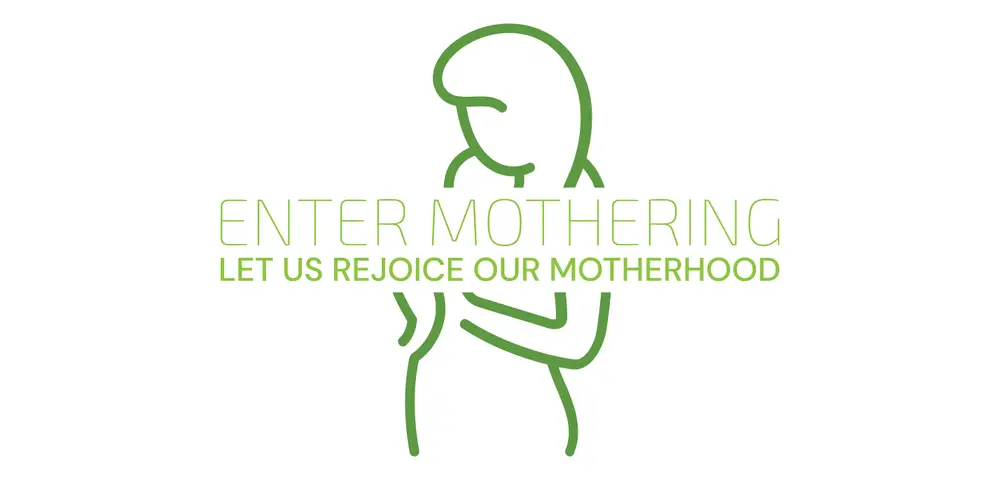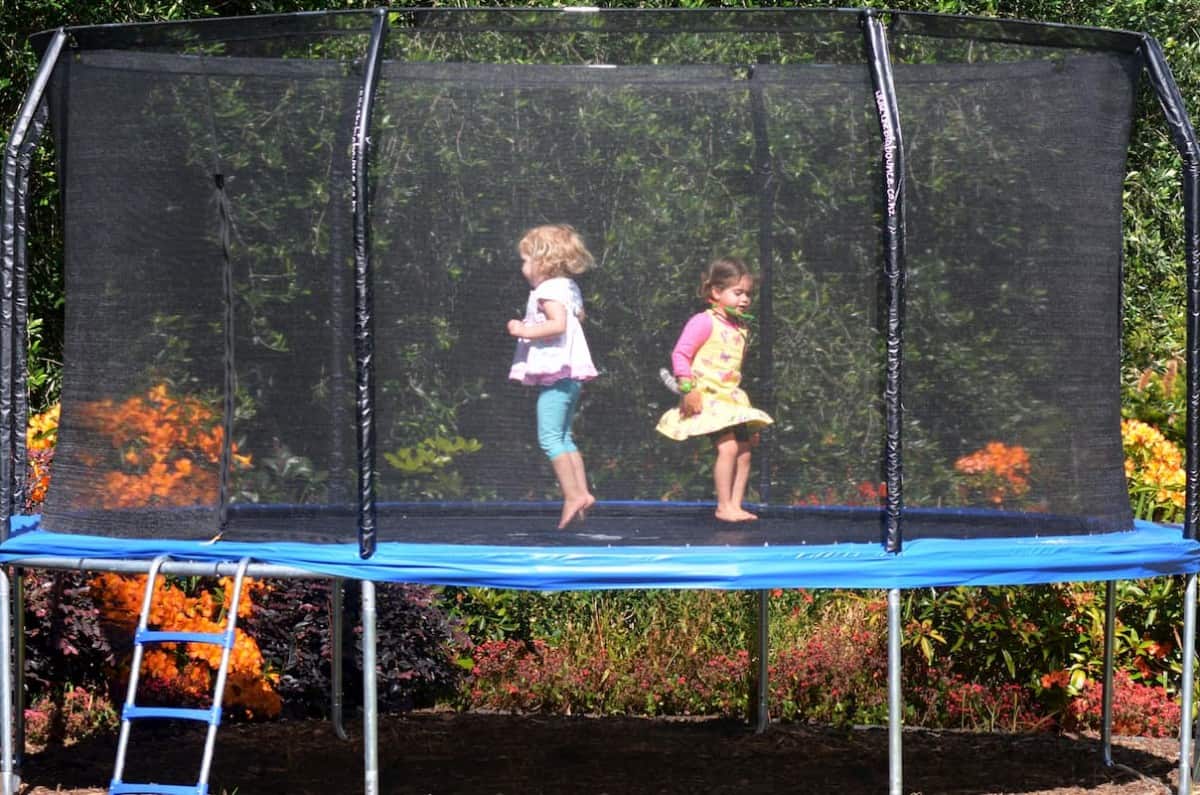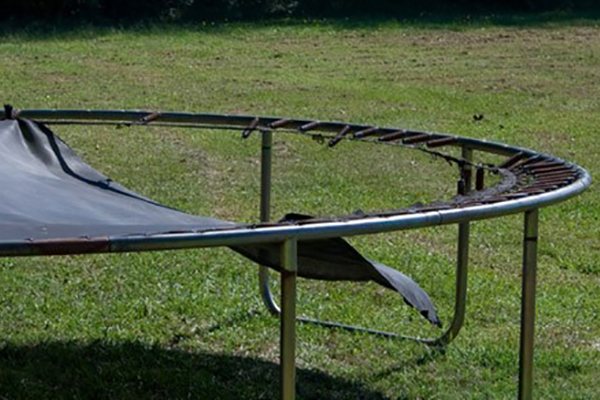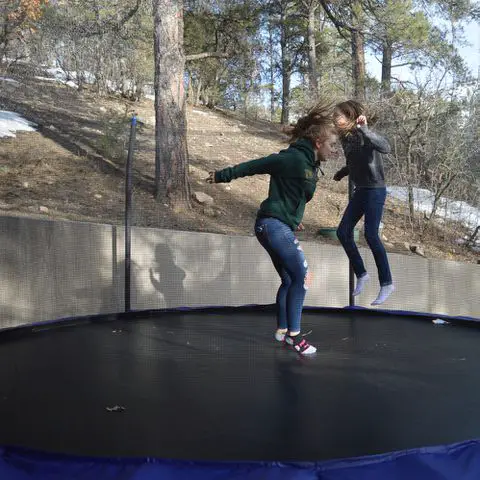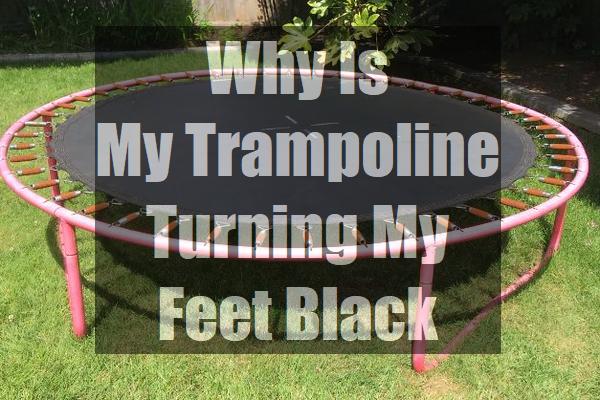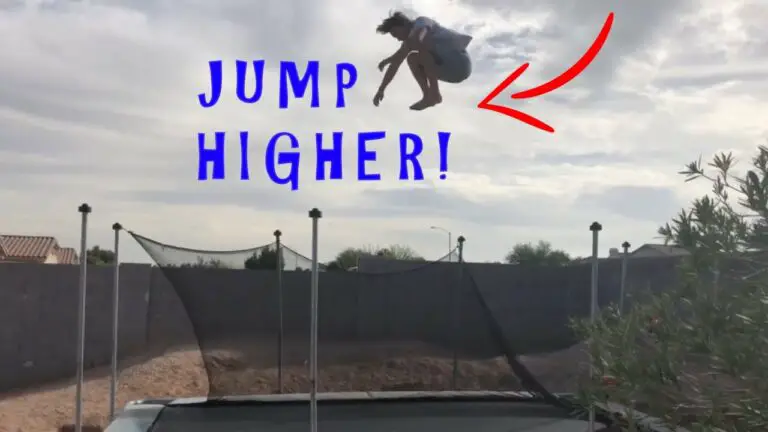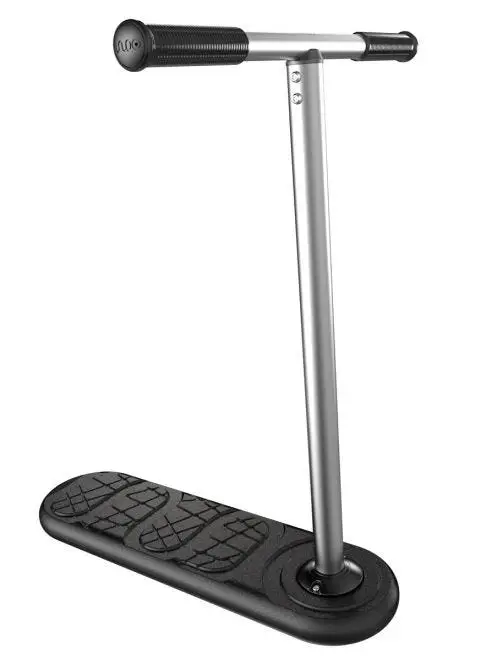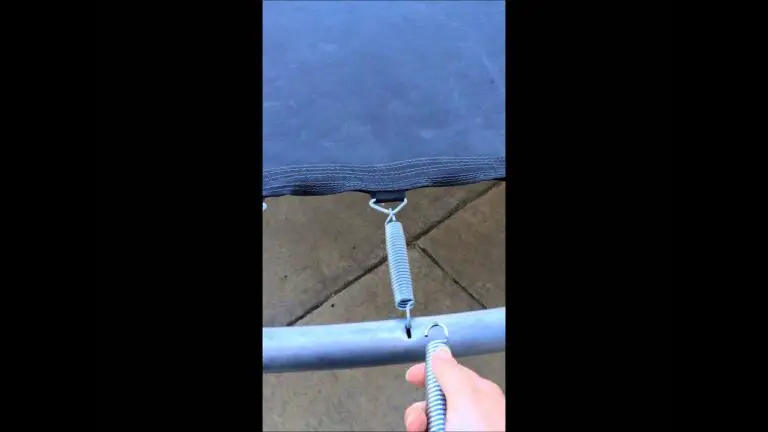If you’re considering renting a property that allows trampolines, there are a few things you should keep in mind. First, check your lease agreement to see if there are any restrictions on having a trampoline on the premises. If there aren’t any explicit prohibitions, then you’ll need to weigh the pros and cons of having one before making your decision.
- If you want to have a trampoline at a rental property, there are a few things you need to do
- First, check with your landlord or property manager to see if trampolines are allowed
- Next, find a spot in your yard that is level and has enough space for the trampoline
- Finally, set up the trampoline according to the manufacturer’s instructions
Trampoline on rent
Backyard Rules for Tenants
As a tenant, you are responsible for keeping your backyard clean and tidy. This includes regular rubbish removal, lawn mowing and weeding.
If you have any pets, you must ensure that they do not cause a nuisance to your neighbours and that their waste is disposed of properly.
You should also keep them from digging up gardens or damaging property.
BBQs are permitted in most backyards, but please check with your landlord or agent first to make sure. If you do have a BBQ, be considerate of your neighbours by not smoking them out!
Noise levels should be kept to a minimum after dark – this means no loud music, parties or shouting. If your neighbour complains about noise coming from your backyard, you may be asked to keep it down or face eviction.
Can You Have a Trampoline in an Apartment
If you live in an apartment, you may be wondering if you can have a trampoline. The answer is maybe. It depends on your lease agreement and the rules of your complex.
You will also need to consider where you will store the trampoline when it is not in use.
If your lease agreement does not specifically prohibit trampolines, then you may be able to have one with permission from your landlord. Be prepared to show them where you plan to keep it and how you will ensure that it does not become a nuisance for your neighbors.
The landlord may require that you purchase liability insurance before they give their approval.
Even if your complex does allow trampolines, there are likely to be some restrictions in place. For example, they may only be allowed in certain areas of the property or during specific hours of the day.
If you plan to use a trampoline at your apartment, make sure to check with your leasing office first so that you are familiar with the rules and regulations.
Do You Need a Permit for a Trampoline
If you’re planning on setting up a trampoline in your backyard, you may be wondering if you need a permit to do so. The answer to this question depends on where you live and the size of the trampoline. In some areas, trampolines are considered “recreational equipment” and don’t require a permit, while in others they may be classified as “structures” which would require a building permit.
The best way to find out if you need a permit for your trampoline is to contact your local city or county planning department. They will be able to give you specific information about the permitting process in your area. Even if you don’t need a permit, there may still be some restrictions on where you can place the trampoline or how big it can be.
So it’s always best to check with your local authorities before making any final decisions.
Liability Waiver for Trampoline Use
If you’re planning to have a trampoline at your next party or event, you may want to consider having everyone sign a liability waiver. This will help protect you from being held liable if someone is injured while using the trampoline.
A liability waiver is a document that releases you from legal responsibility if someone is injured while participating in an activity on your property.
If you’re planning to have a trampoline at your next party or event, it’s a good idea to have everyone sign a waiver before they use the trampoline.
There are many template liability waivers available online, or you can create your own. Be sure to include all relevant information in the waiver, such as the date and location of the event, and any rules that participants must follow.
You should also make sure that each participant signs and dates the waiver before using the trampoline.
Having everyone sign a liability waiver before using the trampoline will help protect you from being held responsible if someone is injured. Be sure to include all relevant information in the waiver and make sure that each participant signs and dates it before using the trampoline.
How to Protect Yourself from Trampoline Lawsuit
No one wants to get injured while playing on a trampoline, but it can happen. If you do get hurt, you may be wondering if you have any legal recourse. The answer is maybe.
It depends on the circumstances of your accident and who is at fault. Here’s what you need to know about trampoline lawsuits.
If the trampoline manufacturer is at fault, you may have a product liability claim against them.
To win such a claim, you would need to prove that the trampoline was defective in some way and that this defect caused your injury. For example, if the frame was poorly made and collapsed while you were jumping, injuring you, then you might have a case against the manufacturer.
If the owner of the trampoline is at fault, you may have a premises liability claim against them.
This would be the case if, for example, they knew there was a hole in the mat but did not warn users or repair it, and someone fell through and got hurt. To win such a claim, you would need to show that the owner was negligent in their duty to keep the premises safe for visitors (in this case, users of the trampoline).
Can a Tenant Put Up a Pool
Are you looking to add a pool to your rental property? Or maybe you’re a tenant wondering if your landlord would be open to the idea. Either way, it’s important to know the ins and outs of installing a pool on rental property before taking the plunge.
Here’s what you need to know about putting up a pool as a tenant or landlord:
Can a Tenant Put Up a Pool?
In general, it’s unlikely that tenants will be able to put up their own pools.
This is because most landlords include language in their lease agreements prohibiting any sort of permanent changes or additions to the property. So unless you have express written permission from your landlord, it’s probably not worth pursuing.
However, there are some exceptions to this rule.
For instance, if you live in an apartment complex that already has a pool on-site, your landlord may be open to the idea of you adding a portable one. Or, if you have a large backyard and your lease doesn’t specifically prohibit pools, your landlord may be open to negotiation. It never hurts to ask!
The Pros and Cons of Adding a Pool for Landlords
If you’re a landlord considering adding a pool to your rental property, there are both pros and cons to take into account. On the plus side, pools can make properties more attractive (and therefore more valuable) which could lead to higher rent prices down the line.
Additionally, many families with young children prefer rentals with pools since they provide built-in entertainment and peace of mind when it comes to safety.
On the downside however, pools also come with added responsibility – namely insurance liability coverage in case someone is injured while using it. Pools also require regular maintenance which can be costly (especially if something breaks).
Tenant Patio Rights
As a tenant, you have the right to enjoy your patio in peace. This means that your landlord cannot unreasonably restrict your use of the patio or take away this enjoyment. If you are having problems with your landlord regarding your patio rights, there are some things you can do.
First, try to talk to your landlord about the problem. It may be that they are not aware of how their actions are affecting you. If this does not work, or if you feel uncomfortable talking to your landlord directly, you can contact a lawyer or mediator.
They can help you communicate with your landlord and resolve the issue without going to court.
If all else fails, you can file a complaint with the Residential Tenancies Branch (RTB). The RTB is a government organization that deals with disputes between tenants and landlords.
They will investigate your complaint and decide if it is valid. If they find that your landlord has been acting unfairly, they can order them to stop and make them pay damages.
How Much Does Trampoline Insurance Cost
The cost of trampoline insurance varies depending on a number of factors, including the size and type of trampoline, the location where it is used, and the company providing the coverage. However, there are some general guidelines that can help you estimate the cost of this insurance. For example, most policies will cover up to $1 million in liability protection for injuries that occur while using the trampoline.
The premium for this coverage is typically around $150 per year.

Credit: www.amfam.com
Is a Trampoline Covered by Renters Insurance?
No, a trampoline is not covered by renters insurance. Renters insurance typically covers your personal belongings and liability in the event of an accident, but it does not cover structures on the property that you rent. If you want to insure your trampoline, you would need to purchase a separate policy for it.
Can a Tenant Put Up a Pool Ontario?
Yes, a tenant can put up a pool in Ontario as long as they have the landlord’s permission. The landlord may want to be involved in the process to ensure that the pool is installed properly and meets all safety standards. If the tenant does not have the landlord’s permission, they may be breaking their lease agreement and could be subject to eviction.
Conclusion
If you’re considering renting a property that comes with a trampoline, there are a few things you should keep in mind. For one, trampolines can be a liability, so make sure your renter’s insurance is up to date. Secondly, check with your local homeowners association or city ordinances to see if there are any restrictions on having a trampoline on rental property.
Finally, be sure to supervise any children who use the trampoline and take proper safety precautions.
